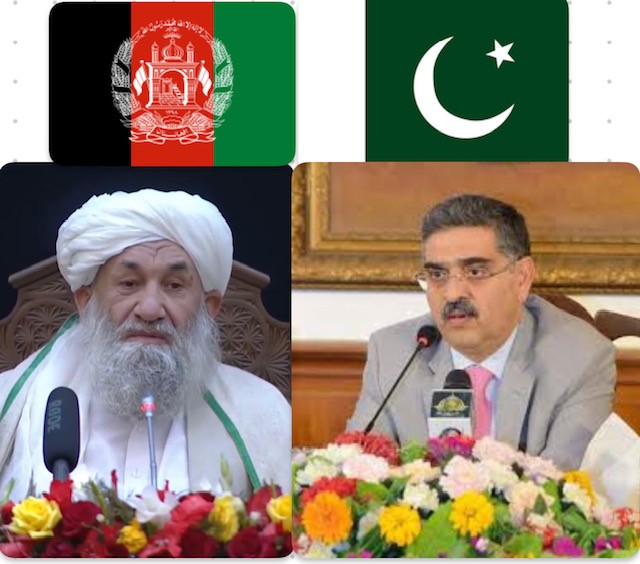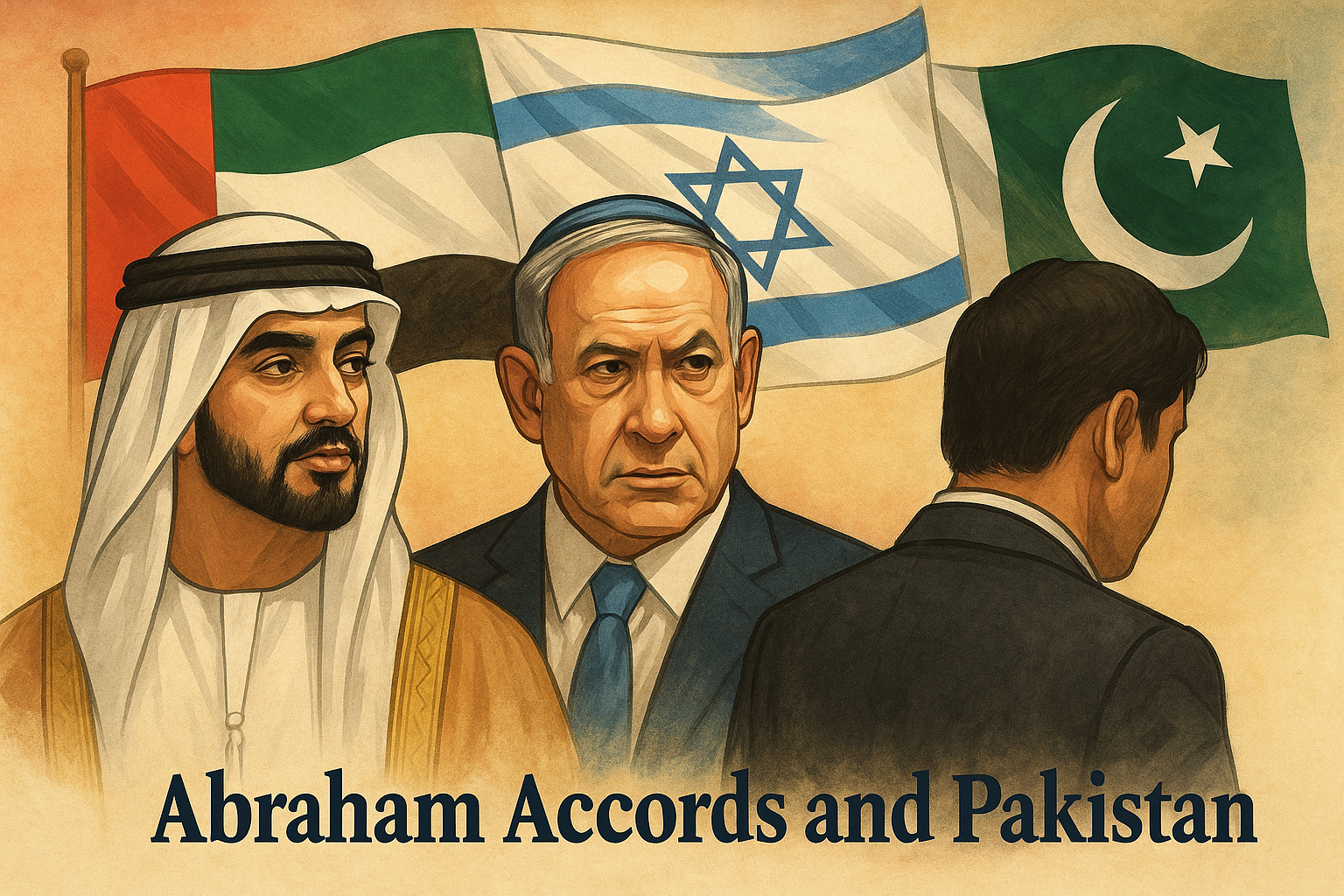
18 Sep 2023
Dr. Naveed Elahi
Torkham border remained closed for good ten days after exchange of fire between the border forces of Pakistan and Afghanistan over unauthorised construction of buildings by the Afghan authorities in the vicinity. Umpteen border clashes and closures have happened after the Afghan Taliban government came into power in August 2021. This time round Pakistan has taken a tough stance and did not let the Afghan Taliban assert its arbitrary will. It appears that after more than two years, the decision makers have reached a threshold to show zero tolerance over the border issues, armed incursions into Pakistan and violation of territorial integrity.
Earlier, when Pakistan talked with the Afghan Taliban government about TTP and cross border terrorism, they were non-committal and suggested talking with the TTP terrorists. As is evident, the repeated rounds of talks hardly succeeded. Ironically, the Afghan Taliban tried to convince Pakistan to keep these issues aside and let trade and business continue unhindered. Meaning thereby even if the TTP terrorists based in Afghanistan kill the forces’ personnel and civilians in Pakistan, trade should continue. Pakistan somehow agreed to his suggestion and has tried to let the trade continue despite horrendous terrorist attacks by the TTP terrorists which mostly emanated from Afghanistan. Nevertheless, now Pakistan has started responding to armed incursions and border issues in the same coin.
After the recent TTP attack in Chitral, Pakistan targeted terrorists’ hideouts inside Afghanistan. Though the matter was brought to the notice of the Afghan embassy in Islamabad, no response was given to ludicrous remarks of Afghan spokesperson Zabhiullah Mujahid, who denied any TTP attack from Afghanistan. Instead, an armed response was given which resulted in the death of twelve TTP terrorists. They were chased inside the Afghan territory and annihilated. The chase & kill operation is continuing in the mountainous areas of Chitral. COAS Gen.Asim Munir and the Defence Minister Kh. Asif had already warned Afghanistan of such a response, and they kept their promise.
The ideal and most suitable scenario is total peace with Afghanistan. Recently, Caretaker PM of Pakistan, Anwaar-ul-Haq Kakar in response to the Afghan prime minister Mulla Muhammad Hasan Akhund’s congratulatory letter to him on assuming the post of caretaker prime minister, said, “Pakistan has close fraternal relations with Afghanistan as we are neighbours and brothers. Pakistan-Afghanistan relations are rooted in religion, culture and history. Pakistan is determined to further strengthen bilateral political, security and economic relations with Afghanistan”. The problem is that it has never happened during the last seven decades and the relations between these neighbours have remained mostly estranged. Only during the Taliban regime of 1996-2001 the marriage of convenience resulted in short-lived cordial relations. Ironically, at a very critical juncture, the Afghan Taliban leadership did not care about the recommendations of Saudi Arabia and Pakistan to oust the al Qaeda leadership from Afghanistan to avoid the US attack on them. Ultimately, the US attacked Afghanistan and the two decades long story of blood and destruction is an open secret which badly affected Pakistan’s security and economy. The most glaring part of our flawed strategy at that time was to keep the Taliban leadership intact inside Pakistan during the US-NATO invasion. Sans this the Afghan Taliban could not sustain and survive even for a year. General Musharraf, being the dictator, ran with the hare and hunted with hounds to prolong his rule.
Today, the Afghan Taliban are back in the saddle and ruling it as per their orthodox style. They are not popular rulers as most of the Afghans, especially women and educated youth, detest their coercive and crude policies. They might take time to realise the rueful fallouts of their ultra orthodox policies and stringent approaches which are creating hatred among the public against them. The political dissent, howsoever distant and dim, is of course there in the form of northern alliance and silent urbanites. Many Afghans settled abroad also crave for a modern Afghanistan. The enormity of internal dissensions and dissatisfaction is likely to snowball into real threat to the Taliban regime in a couple of years. Pakistan will have to take this aspect into consideration and adopt long-term measures for good relations with Afghanistan.
The Caretaker PM A H Kakar has rightly pointed out in his letter to the Afghan PM that increasing regional trade and connectivity is essential for the prosperity of Pak-Afghan people and we should work together to achieve the common goals of both the countries. It rightly indicates that it will take much more than the religious, cultural and geographical bonds to create good relations between the two countries. The natural bonds have not worked in the past. Sustainable trade and business can be a more pragmatic way to develop long-lasting relations. As per the desire of the Taliban government Pakistan should not let terrorism and other bitter matters create a lull in the two-way trade. Legal and documented trade can be beneficial for both the countries. It should be dealt with in a businesslike manner. Nevertheless, it is equally important that the response to any aggression on the borders or terrorism from across the border must be responded immediately and with matching might, if not more.
Presently TTP is the biggest irritant between the Pak-Afghan relations. Afghan Taliban do not seem to be ready to bridle them in Afghanistan and stop from attacking Pakistan. Pakistan’s repeated efforts to appease them and hold talks with them have failed. Only when the Afghan Taliban start considering the TTP presence in Afghanistan as a liability, then it would think of getting rid of it. To exert pressure, Pakistan should link curbing the TTP activities as a prerequisite for full normalisation of relations with Afghanistan. Besides, the other neighbours and investors, including Iran and China should be taken on board to pressurise Afghanistan. TTP is a constant threat to CPEC. China must clearly tell the Afghan Taliban to rein in TTP so that they do not attack their interests in Pakistan. The US and West should be apprised that TTP and other terrorist groups operating from Afghanistan soil are detrimental to their security as well. TTP has direct link with al Qaeda as they started their journey as their facilitators and foot-soldiers in erstwhile tribal areas of Pakistan after 2002. Their bond is strong and sustainable. The Afghan Taliban government had played host to Osama bin Laden and al Qaeda in the past and are still in direct contact with them. So, the trio is a dangerous amalgamation of terrorist groups that are a real threat to the security and stability of the region and the world.
Two million Afghan refugees have been residing in Pakistan for the last forty years. Pakistan must use them to put pressure on their government in Afghanistan to take all measures to normalise relations with Pakistan, their second home. Their elders and representatives should be allowed to visit Afghanistan to convince the Afghan Taliban government to sever relations with TTP and develop cordial relations with Pakistan. They can visit their hometowns and talk to the local populace to help them create this pressure. But prior to that their grievance should be addressed and proper laws should be made to ensure how they would spend their lives safely in Pakistan. Unregistered refugees should be sent back to Afghanistan.
A large number of Afghan students are studying in Pakistan. More scholarships should be offered to the prospective students so that a greater number of youths can get higher education in Pakistan and go back as the ambassadors of goodwill. It is better to give greater facilities to the female students to study here because the opportunities for them are far less in Afghanistan. Ulema and religious scholars should play their role to talk to the Afghan government at all levels to ensure a better future for the peoples and governments of both countries. A multi-pronged, sustained strategy, based on all above-mentioned measures, can put the Pak-Afghan relationship on the right track.
Author is the editor of The Strategic Brief

